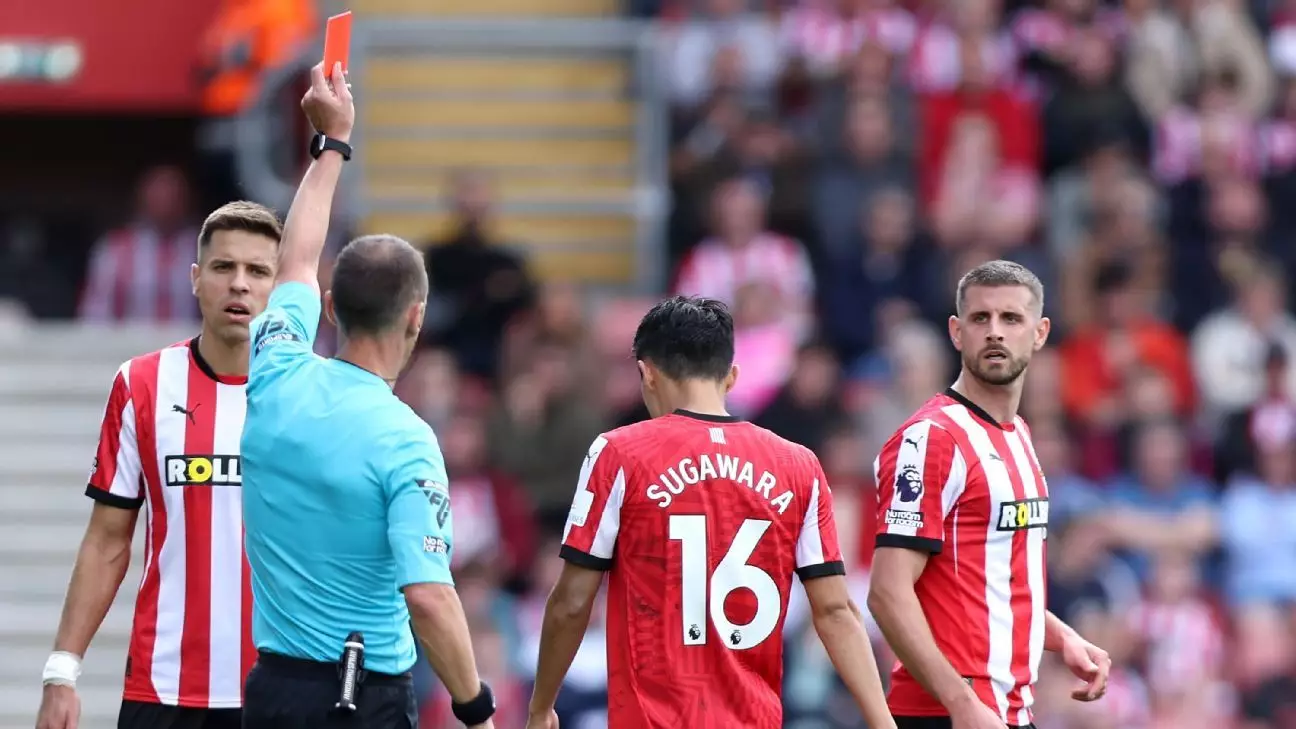Southampton’s captain, Jack Stephens, has recently found himself at the center of a disciplinary storm, having been fined £50,000 ($66,535) and handed a two-match ban by the English Football Association (FA). This penalty stems from his behavior during a Premier League match against Manchester United, which took place on September 14. After being shown a red card for a reckless challenge on Alejandro Garnacho, Stephens engaged in a heated dispute with the match officials, leading to a review that resulted in significant sanctions being imposed.
The Nature of the Offense
During the 79th minute of the game, Stephens’ frustrations boiled over in a manner deemed intolerable by the FA. His use of abusive language directed towards referee Stuart Attwell and fourth official Gavin Ward not only breached the expected standards of player conduct but also highlighted a troubling trend of disrespect towards officials in the sport. The FA’s statement indicates that Stephens acknowledged his misuse of language, admitting that his words were “abusive and insulting.” This acknowledgment is crucial as it illustrates an important first step towards accountability.
In the aftermath of the incident, Stephens showed remorse and took responsibility for his actions. He expressed regret in a personal statement, recognizing his privileged position as team captain and the expectations it entails. His declarations underline the critical understanding that athletes are often seen as role models. In acknowledging that his behavior could influence others, he placed a spotlight on the responsibility athletes bear, especially in the public eye. This approach to accountability is commendable, yet raises questions about whether more can be done to reinforce the importance of professional conduct among players.
With Stephens sidelined, Southampton faces a significant challenge as they prepare for critical matches against Arsenal and Leicester City. The implications of his absence are profound, especially given the club’s precarious position at the bottom of the league standings. This situation underscores how a single player’s misconduct can reverberate throughout an entire team. Despite the already disappointing season, Southampton must now rally without their captain, further complicating their efforts to ascend the league table.
The sanctions imposed on Jack Stephens not only serve to penalize a player for poor conduct but also reflect a broader commitment within football to uphold integrity and respect for match officials. As the sport grapples with these issues, it is essential for both governing bodies and players to strive for an atmosphere of respect and accountability. Ultimately, the lessons drawn from this incident can contribute to improved standards in professional conduct, potentially fostering a more positive environment both on and off the pitch. Such growth would not only benefit the players themselves but elevate the sport as a whole, promoting a culture that prioritizes respect and sportsmanship.
